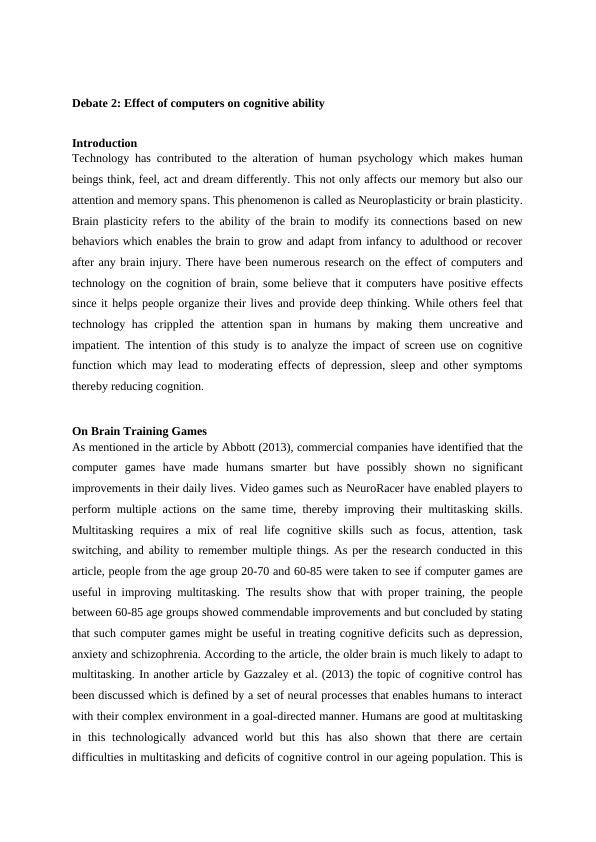Effect of Computers on Cognitive Ability
5 Pages1490 Words49 Views
Added on 2023-01-13
About This Document
This study analyzes the impact of computers on cognitive ability and brain plasticity. It explores the positive and negative effects of technology on memory, attention, and multitasking. The research examines the relationship between screen use and cognitive function, as well as the moderating effects of depression, sleep, and other symptoms. The article also discusses the impact of brain training games and the effects of computers on the brain.
Effect of Computers on Cognitive Ability
Added on 2023-01-13
ShareRelated Documents
End of preview
Want to access all the pages? Upload your documents or become a member.
Screen Technologies and Cognitive Development
|5
|1410
|443
Impact of Screen Technology on Cognitive Development
|5
|1342
|483
Applied Psychological Development - PDF
|7
|1585
|71
EFFECT OF COMPUTERS ON COGNITIVE ABILITY.
|9
|443
|70
The Use of Antidepressants in Dementia in the Elderly in Nursing Homes
|52
|13064
|74
Developing the Research Question Assignment 2022
|6
|1434
|9


